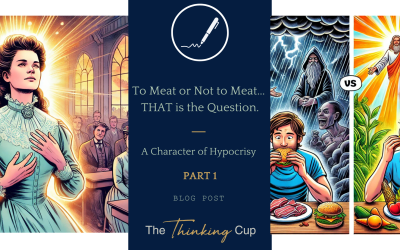History is History. Right?
And when we learn about church history from the Church, it’s consistently accurate! Right?
As a kid, I remember sitting in many SDA Revelation Seminars and learning about the “change of the Sabbath day” from Sabbath to Sunday. As many of my SDA friends can confirm, the simple proof for this assertion is Constantine in 321 AD, when the newly converted Christian Roman Emperor changed the say from Sabbath to Sunday in this famous ‘Catholic’ move.
This ‘historical’ retelling of Church history is a current misconception heavily propagated in Adventist circles. I am unaware of any other ‘Christian’ denomination that teaches this idea. Why? Other denominations have no need for the dates and hostile position against the Catholic Church that the Adventist church takes to formulate their interpretation of End Times Prophecy.
What is often claimed is that the Sunday worship service originated with a law and a church council. The law cited is the law of Constantine in A.D. 321, which declared that Sunday was the proper day of observance:
All judges and city people and craftsmen shall rest upon the venerable day of the sun. Country people, however, may freely attend to the cultivation of the fields, because it frequently happens that no other days are better adapted for planting the grain in the furrows or the vines in the trenches. So that the advantage given by heavenly providence may not of a short time perish.[1]/[2].
In the early Christian church, there were many important councils where the leaders gathered to make important decisions related to the church’s direction and beliefs. The council that Adventists will then point to is the Council of Laodicea in A.D. 364, which decreed that Sunday was the proper time to have the worship service. Using these two main points, they claim that Sunday observance began with Catholicism.
While this is an overly simplistic summary of the view, the historical reality of these claims is otherwise. By the beginning of the 2nd century, Sunday worship became the universal practice of ALL churches outside the Land of Israel. Historical documents bear this out.
As the famous author Mark Twain stated,
“It’s easier to fool people than to convince them that they have been fooled.”
Historians and theologians have written much about the speculations around Constantine’s motive and the meaning behind the Edict in 321 A.D., but the theory espoused by the SDA Church is completely out of line and propagates a false historical narrative—one that might serve their own interpretation but is dishonest to the history of the church.
Ellen White claimed this under her self-proclaimed divinely inspired pen:
The day of the sun was reverenced by his pagan subjects and was honored by Christians; it was the emperor’s policy to unite the conflicting interests of heathenism and Christianity. He was urged to do this by the bishops of the church, who, inspired by ambition and thirst for power, perceived that if the same day was observed by both Christians and heathen, it would promote the nominal acceptance of Christianity by pagans and thus advance the power and glory of the church. But while many God-fearing Christians were gradually led to regard Sunday as possessing a degree of sacredness, they still held the true Sabbath as the holy of the Lord and observed it in obedience to the fourth commandment.[3]
One must be willing to read, study, and ask good questions about the ideas and beliefs that one holds dear. If we aren’t able to ask questions and let the truth be discovered, then we are just allowing others to control our minds and lives!
The early church councils did NOT initiate Sunday worship. What the church councils did was merely ratify a practice that was already quite common. The origin of the Sunday service was not with Catholicism; it was not with church councils; it was not with the Law of Constantine. It was already a practice among all churches outside the Land of Israel.
The Emperor’s concept of rest was anything but a reference to a Jewish sabbatism since farmers were allowed to work on the day of rest. The Edict does not mention the Sabbath or the Lord’s Day, only the “venerable Day of the Sun,” so it is difficult to support the thesis that Constantine was attempting to establish a Christian sabbatism. As Bauckham concluded, “While it is probable that at least some Christians desired the status of an official holiday for Sunday, there was scant theological justification for this, [because] in Christian thought the ideas of Sabbath rest had been so consistently reinterpreted that physical rest from work was precisely what it no longer meant.”[4]
I will be writing more on the topic, but for now, I want to introduce a new contributor to my blog, Bill Fritz, who will summarise his own findings on the topic.
You can read the article here: https://thethinkingcup.com/2024/07/25/did-the-catholic-church-change-the-sabbath-to-sunday/
As always, please comment, agree, disagree, and respond… but always do so in a way that honors the image of God, the image that all humans are made in!
[1] Codex Justinianus 3:2:2.
[2] Terrence D. O’Hare, The Sabbath Complete: And the Ascendency of First-Day Worship (Eugene, Oregon: Wipf and Stock, 2011).
[3] Ellen Gould White, The Great Controversy Between Christ and Satan, vol. 5, Conflict of the Ages Series (Pacific Press Publishing Association, 1911), 53.
[4] Terrence D. O’Hare, The Sabbath Complete: And the Ascendency of First-Day Worship (Eugene, Oregon: Wipf and Stock, 2011).




0 Comments